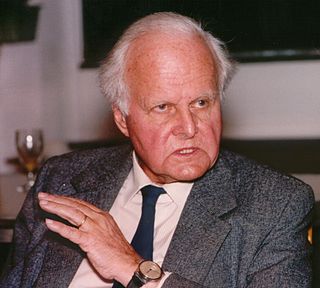A Quote by Dale Jamieson
Critics of Consequentialism have often assumed that hedonism (or preference-satisfaction) must be the theory of the good, that the deontic principle must be maximizing, and that the principle should be applied to individual acts. Indeed, this version is often called "classical utilitarianism" and attributed to Bentham and sometimes even to Mill. Rather than a "classical" view it is a recent construction foisted on to the tradition.
Related Quotes
The intellectual and moral satisfaction that I failed to gain from the utilitarianism of Bentham and Mill, the revolutionary methods of Marx and Lenin, the social contract theory of Hobbes, the "back to nature" optimism of Rousseau, and the superman philosophy of Nietzsche, I found in the nonviolent resistance philosophy of Gandhi. I came to feel that this was the only morally and practically sound method open to oppressed people in their struggle for freedom.
The Consequentialist trinity is typically regarded in this way: Bentham is crude, Mill's writings are full of howlers and inconsistencies, and Sidgwick was too smart to fully embrace Consequentialism. All of these great traditions in moral philosophy express strands of our moral consciousness and they should all be treated as research programs rather than as fully determinate views that can be leveled by a counterexample or by a clever argument.
Bentham spent much of his life writing constitutions and proposing legal reform in the light of his utilitarianism. The evaluation of particular acts was hardly his concern. The psychology of his day was hedonistic and he worked in that framework and passed it on to Mill, but it is clear as day that Mill was not a hedonist in the sense in which we use that term today, though he used the language of pleasure and pain to express his views.
Now let us regard the idea of God from the magic standpoint, according to the four elements, the so-called tetragrammaton, the unspeakable, the supreme: the fiery principle involves the almightiness and the omnipotence, the airy principle owns the wisdom, purity and clarity, from which aspect proceeds the universal lawfulness. Love and eternal life are attributed to the watery principle, and omnipresence, immortality and consequently eternity belong to the earth principle. These four aspects together represent the supreme Godhead.
The concept of national sovereignty has been an immutable, indeed sacred, principle of international relations. It is a principle which will yield only slowly and reluctantly to the new imperatives of global environmental cooperation. It is simply not feasible for sovereignty to be exercised unilaterally by individual nation states, however powerful. The global community must be assured of environmental security.
John Stuart Mill believed that the only acceptable reason for government to limit a person's liberty was to prevent him from causing unacceptable harm to others. Mill was not a libertarian, but many libertarians are quick to cite this principle when arguing against a regulation that they oppose. And I believe most thoughtful libertarians are prepared to embrace something fairly close to Mill's harm principle. But accepting that principle implies accepting many of the institutions of the modern welfare state that libertarians have vigorously opposed in the past, such as safety regulation.
Sociological method as we practice it rests wholly on the basic principle that social facts must be studied as things, that is, as realities external to the individual. There is no principle for which we have received more criticism; but none is more fundamental. Indubitably for sociology to be possible, it must above all have an object all its own. It must take cognizance of a reality which is not in the domain of other sciences... there can be no sociology unless societies exist, and that societies cannot exist if there are only individuals.
Look at the great tradition of Western political philosophy. Those people were all immersed in revolutionary movements. Most weren't career academics - often, they were too radical to be accepted in the academy. Rousseau's books were banned. Jeremy Bentham and John Stuart Mill couldn't hold academic positions because they were atheists.
I think it's often easier to theorize in the official codes of theory rather than to theorize lightly through scene, object, story, and incident in ways that keeps alive the sensual serendipities of language. This is not a question of being for or against theory, but rather of being suspicious of orthodoxies that concede, in advance, that what passes for theory must be signaled by a narrowing of diction, sentence rhythms, and sensual awareness. I'm in favor of surprise.































